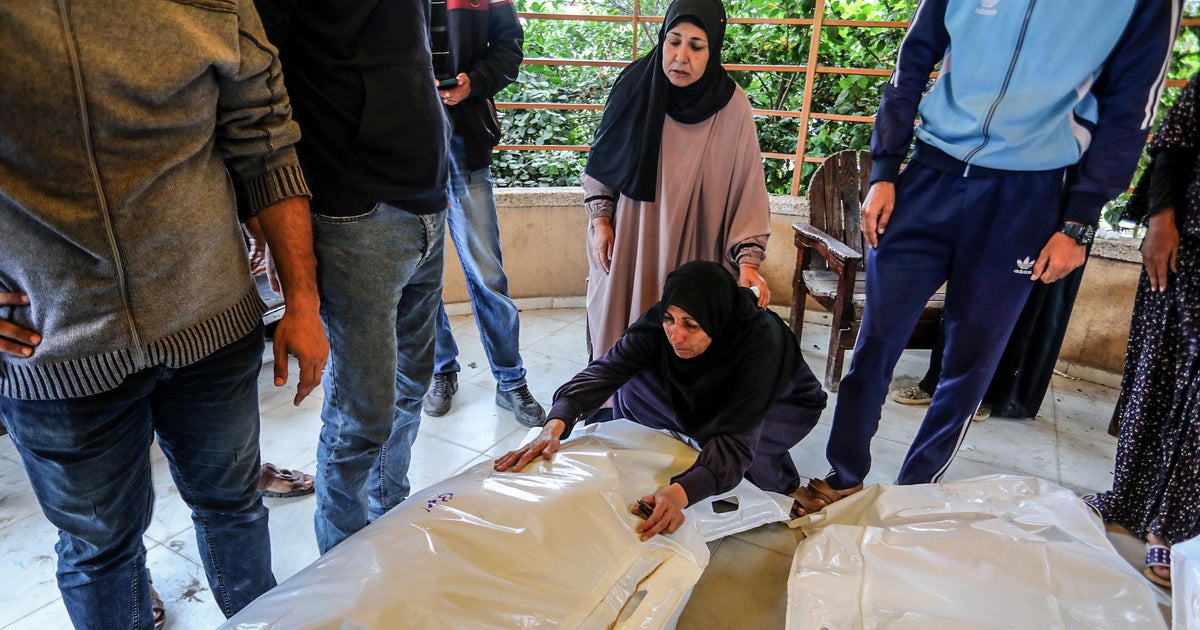10 years into Syria's civil war, life is still getting "more difficult" for 5 million refugees
Ein al-Basha, Jordan — Ammar Haj lives in a modest three-room apartment with his wife and five children. Every night they gather for a simple meal of lentils, rice and salad at their home outside the Jordanian capital of Amman.
"This is the only time I get to see my children," Ammar told CBS News as he ate with his family. "I usually have to be at work before they wake up in the morning."
Ammar isn't from Jordan. He's one of 23,000 refugees who fled the village of Khirbet Ghazaleh in southwest Syria when it became an early battleground in Syria's vicious civil war — a conflict that's still raging a decade later, and still taking an unspeakable human toll.
His town was one of the first places seized by rebel forces. President Bashar Assad's army later reclaimed the ground, and razed most of the homes there in the process.
"No other option"
Since the war started in March 2011, the United Nations Refugee Agency (UNHCR) says it has driven "unprecedented devastation and displacement," forcing more than 5 million people to flee their country and leaving another 6 million displaced within Syria's borders.
"I had no other option but to take my family and illegally cross into neighboring Jordan," Ammar told CBS News. His life as a refugee started in the sprawling Zaatari refugee camp in 2013, but he later moved to the town of Ein al-Basha, northwest of the capital.
"I did all sorts of jobs to survive," said Ammar, who used to work in Syria as a land surveyor before the war. "I worked in dirt, in construction, in factories — I did any job to be able to survive."
Now he works in a clothing store, bringing home less than $260 per month. His income is supplemented with another $230 per month worth of food vouchers provided by UNHCR.
"My income hardly lasts me and my family to the end of the month," Ammar told CBS News. "We are living from hand to mouth."
Four of Ammar's children came with him from Syria and a fifth was born in Jordan. Mohammed, his eldest, is now 16, and the proud father boasts that he's "been the first in his class for the past two years."
With schools across Jordan closed due to the coronavirus pandemic, the five children have been trying to keep on top of their studies remotely by sharing their mother's cell phone and an outdated tablet. Ammar said it has hit Mohammed, who "loves to study," badly.
Getting worse, not better
"People are at a breaking point," UNHCR senior communications advisor Rula Amin told CBS News. While "the attention of the world has shifted from the Syria crisis and people tend to think that maybe it has become easier, with every passing year, it becomes more difficult, not easier for Syrian refugees."
"Whatever savings they had brought with them they have spent. Whatever patience they had brought with them, and the hope they had that they would go back very quickly and they can rebuild their lives again, is also disappearing."
That loss of both hope and resources is hitting children particularly hard, Amin said — and many of them even harder than Mohammed.
"There's an increase in child marriage. There's an increase in refugee children who are engaged in child labor. There is an increase in violence against women and domestic violence," she told CBS News. "Combined with COVID, past achievements and gains to help the refugees to be self-reliant and give them access to services like education and health services are being eroded."
She said that over the last year, UNHCR helplines have "seen a significant increase of refugees calling to report self-harm and attempted suicides... There's a sense of desperation and people cannot cope."
Amin called on the international community to find a way out of the conflict, and until that happens, she said "support needs to be stepped up if we are to save the day. At stake is the future of a whole generation of Syrians, Syria and the region."
"For the sake of my children"
In 2016, Ammar applied with the U.S. government for refugee status, hoping to be relocated to America with his family.
"I submitted all my papers and did two interviews to go to the USA," he said. "I am 45 years old now - it is too late for me, but I just hope that we will be able to go to the USA for the sake of my children."
He's still waiting to hear back about his application.
In the meantime, Ammar's had enough of life as a refugee, and of the seemingly endless cycle of war and blame preventing his return to what was once home.
"Too much blood has been spilled. We don't care anymore who is guilty and who is innocent," Ammar told CBS News. "The international community has been supporting us, but this is not enough. We wish to go back to our country and live with honor and dignity."






